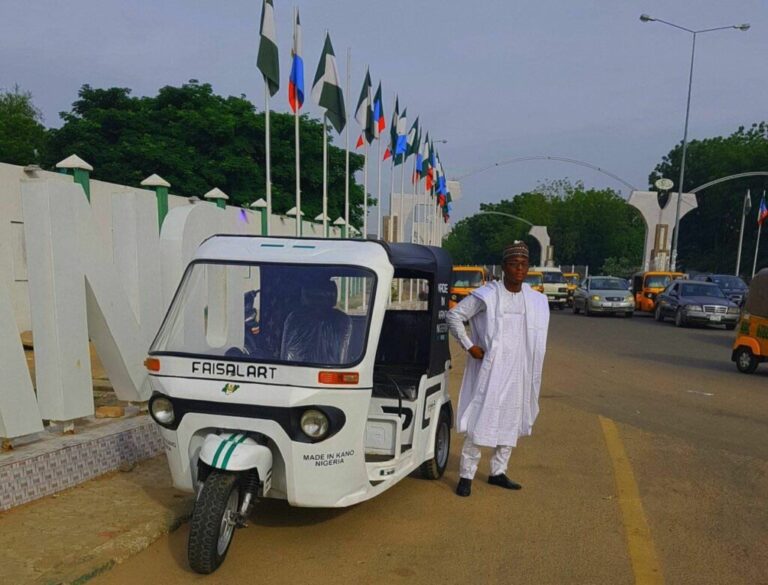Nigeria’s natural wealth is often measured in oil and minerals, but its true strength lies in people who dare to innovate against all odds. One such trailblazer is Hajiya Rukayya Khalid, an entrepreneur from Kano who is pushing boundaries by designing and producing electric tricycles entirely from local materials. Her mission: cut transportation costs and reduce environmental impact.
As founder of Prestige Tricycle Nigeria Limited, Rukayya shared with SolaceBase that her decision to venture into engineering was fueled by a lifelong passion for building things rather than following conventional business paths. “I’ve always preferred making something with my own hands. Ordinary trading never attracted me,” she explained.
Her entrepreneurial journey began in agriculture, where she specialized in liquid fertilizer production. But when the fertilizer market slowed, she revived a dream she had carried for years: crafting electric tricycles. “I once showed my children a photo of a sleek electric tricycle and told them I’d build one someday. They believed me because they know I always follow through. Five years later, we’re producing them,” she recalled.
So far, her workshop has rolled out about 12 prototypes, all fully electric. She recently unveiled a model she described as a breakthrough, boasting a specially designed engine that makes it more durable, easier to maintain, and cheaper than traditional options.
Remarkably, Rukayya never attended university, yet she attributes her knowledge and skills to determination and divine inspiration. “Allah gave me the wisdom to do this,” she said.
Her story is a testament to Nigeria’s untapped human capital. Across the country, from tech founders in Lagos to agripreneurs in rural communities, innovators like Rukayya are proving that Nigeria’s greatest asset is its people.
Rukayya believes young people must embrace courage and persistence: “If you know you can do something, don’t let anyone stop you. Try it, and face the challenges without waiting for others,” she urged.
She also called on policymakers and private investors to support homegrown inventors, stressing that innovation flourishes where communities back their own talent. “In other countries, when someone develops an idea that can help society, they receive support. That is why they move forward. We need the same here,” she emphasized.
Beyond the mechanics of tricycle building, Rukayya’s work carries a larger message: Nigeria’s transformation will not come from imported solutions but from nurturing the creativity of its people. With the right investment in innovators like her, the nation can drive economic growth while tackling local challenges with local answers.

